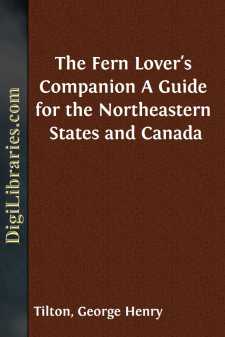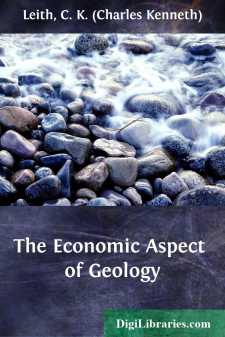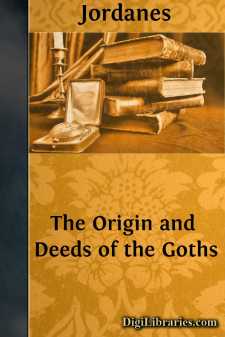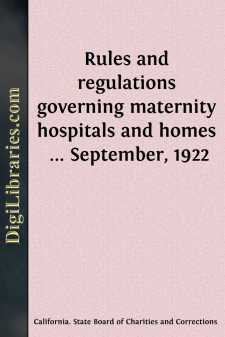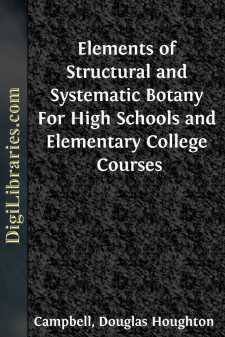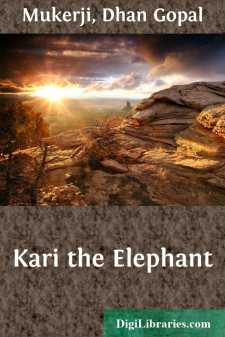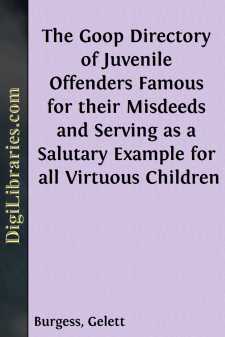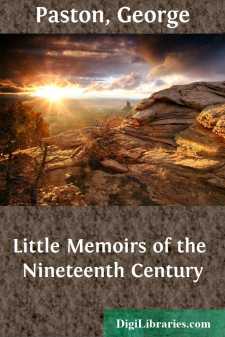Non-Classifiable
- Non-Classifiable 1768
Non-Classifiable Books
Sort by:
PREFACE A lover of nature feels the fascination of the ferns though he may know little of their names and habits. Beholding them in their native haunts, adorning the rugged cliffs, gracefully fringing the water-courses, or waving their stately fronds on the borders of woodlands, he feels their call to a closer acquaintance. Happy would he be to receive instruction from a living teacher: His next...
more...
CHAPTER I SURVEY OF FIELD In adapting ourselves to physical environment it has been necessary to learn something about the earth. Mainly within the last century has this knowledge been organized into the science of geology, and only within the last few decades have the complex and increasing demands of modern civilization required the applications of geology to practical uses, resulting in the...
more...
by:
Jordanes
THE ORIGIN AND DEEDS OF THE GOTHS (Preface) Though it had been my wish to glide in my little boat 1 by the shore of a peaceful coast and, as a certain writer says, to gather little fishes from the pools of the ancients, you, brother Castalius, bid me set my sails toward the deep. You urge me to leave the little work I have in hand, that is, the abbreviation of the Chronicles, and to condense in my own...
more...
CHAPTER 69, STATUTES 1913. An act to provide for the licensing, inspecting and regulating of maternity hospitals or lying-in asylums, and institutions, boarding houses and homes for the reception and care of children, by the state board of charities and corrections, and providing a penalty for the violation of the provisions of this act. [Approved April 23, 1913. In effect August 10, 1913.] The people...
more...
CHAPTER I. MAN, COMPOSED ALMOST WHOLLY OF WATER, IS CONSTIPATED. WHY? Naturally the mind of man was first educated to observe external objects and forces in their effects upon himself, and the external still continues to engross his attention as if he were a child in a kindergarten. Fascinated by the Without, he ignores the Within. But, marvel of marvels, Disease (which when looked at with discerning...
more...
PREFACE. The rapid advances made in the science of botany within the last few years necessitate changes in the text books in use as well as in methods of teaching. Having, in his own experience as a teacher, felt the need of a book different from any now in use, the author has prepared the present volume with a hope that it may serve the purpose for which it is intended; viz., an introduction to the...
more...
"Unto many Fortune comes while sleeping."—Latin Proverb. "Few know what is really going on in the world."—American Proverb. It is but a few years since it suddenly struck the gay world of comic dramatists and other literary wits, that the Nineteenth Century was drawing to an end, and regarding it as an event they began to make merry over it, at first in Paris, and then...
more...
BRINGING UP KARI ari, the elephant, was five months old when he was given to me to take care of. I was nine years old and I could reach his back if I stood on tiptoe. He seemed to remain that high for nearly two years. Perhaps we grew together; that is probably why I never found out just how tall he was. He lived in a pavilion, under a thatched roof which rested on thick tree stumps so that it could...
more...
by:
Gelett Burgess
INTRODUCTION In this DIRECTORY you'll seeJust what you never ought to be;And so, it should Direct your wayTo Good Behavior, every day.The children of whose faults I tellAre known by other names, as well,So see thatyouaren't in this groupOf Naughty Ones.Don't be a Goop! Talking while Eating A Goop that alwaysmakes me smileIs this one:Marmaduke Argyll.His mouth is fullfrom cheek to...
more...
by:
George Paston
BENJAMIN ROBERT HAYDON PART I If it be true that the most important ingredient in the composition of the self-biographer is a spirit of childlike vanity, with a blend of unconscious egoism, few men have ever been better equipped than Haydon for the production of a successful autobiography. In naïve simplicity of temperament he has only been surpassed by Pepys, in fulness of self-revelation by...
more...


